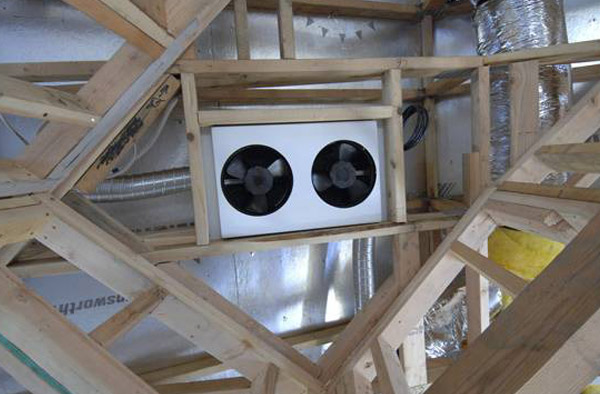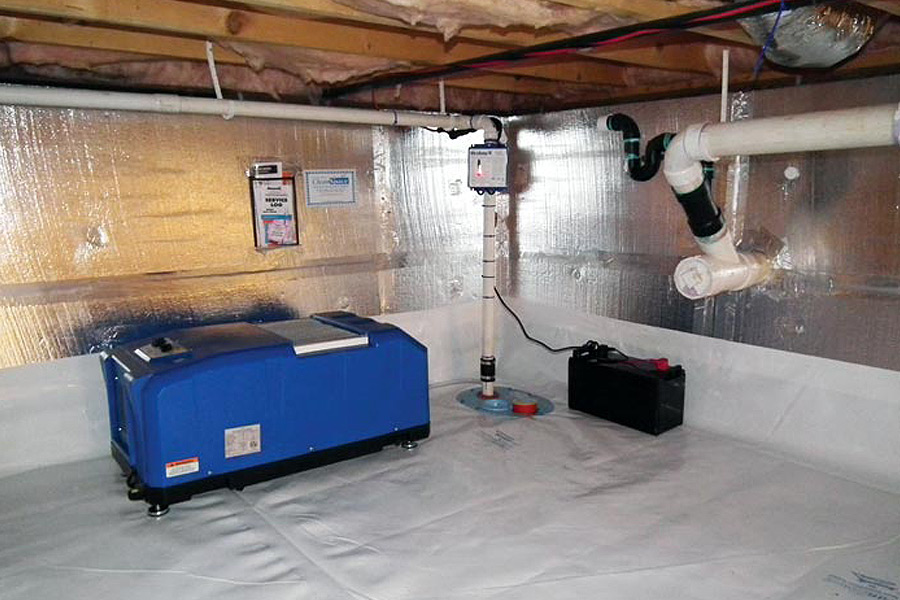Humidity Control
Due to its position below ground, moisture from the earth seeps in through the floor and walls. When this cold moisture collides with the warmer basement air, condensation develops. Excessive condensation creates a musty, sour smell and, if left to collect into pools of liquid water, stagnates or produces a breeding ground for mold and mildew spores. Some molds are toxic and hazardous to the health of the home’s occupants. The Environmental Protection Agency reports that certain types of mold, particularly black mold, can aggravate or cause allergic reactions, asthma attacks and symptoms of influenza. The EPA recommends that homeowners reduce or remove any water leaks or moisture problems, and ventilate the basement. A constant influx of clean, fresh air inhibits mold and mildew growth.
Natural ventilation makes use of natural air currents, but this type of ventilation works only for basements with windows that are strategically placed and able to open and close. While the natural method conserves energy, it does require more work. Windows must be opened at regular intervals and closed during times of rainfall or at night to prevent intruders from entering the basement. For best results, windows should be opposite each other across the basement space, following the natural drafts of the basement. A wet basement needs additional ventilation, such as fans or a dehumidifier. If the basement is continuously wet, the natural method is most likely insufficient and a more mechanical system may be required.

Mechanical ventilation uses fans and vents to exhaust existing basement air and bring in fresh, outdoor air. This type of system may be as simple as placing small window fans in opposite windows or as technical as installing an exhaust fan with ventilation pipe. Many homeowners opt for a mechanical ventilation because of the great flexibility and automation it provides.
A basic mechanical ventilation system begins with a design plan and depends largely on the size of the basement and other appliances or items in the space. For most small to moderately sized basements, a ventilation fan on one side of the basement and an exhaust fan on the other end is suitable. The fans may be permanently installed within existing window cavities, or may need dedicated openings cut through the portions of the basement walls that are above ground.
The best ventilation fans include a humidity sensor for simple automation. Once the sensor detects a certain moisture content, the fans vent the air until the moisture content in the basement is reduced. The EPA suggests that homeowners maintain an environment below 60 percent humidity to inhibit the growth of mold and mildew in their basements.
Call 2 River Group today at 732.383.7871 for a free, comprehensive inspection and estimate.



2 River Group Services
“After the hurricane, TRR stepped in and evaluated the mold damage and prevented further damage, then formulated a plan to remedy the problem. I received an excellent quality of work at a fair price. They also helped several of my neighbors, who were also very happy with their service.”
~ Chris, Oceanport
“The keywords are: Reliable, honest and competitive pricing. We’re still friends even after the project was completed.”
~ Dr. Ted, Little Silver

Ready to get started?
Get in touch with us
2 River Group
2 Conover Place
Little Silver, NJ 07739
U.S.A.




